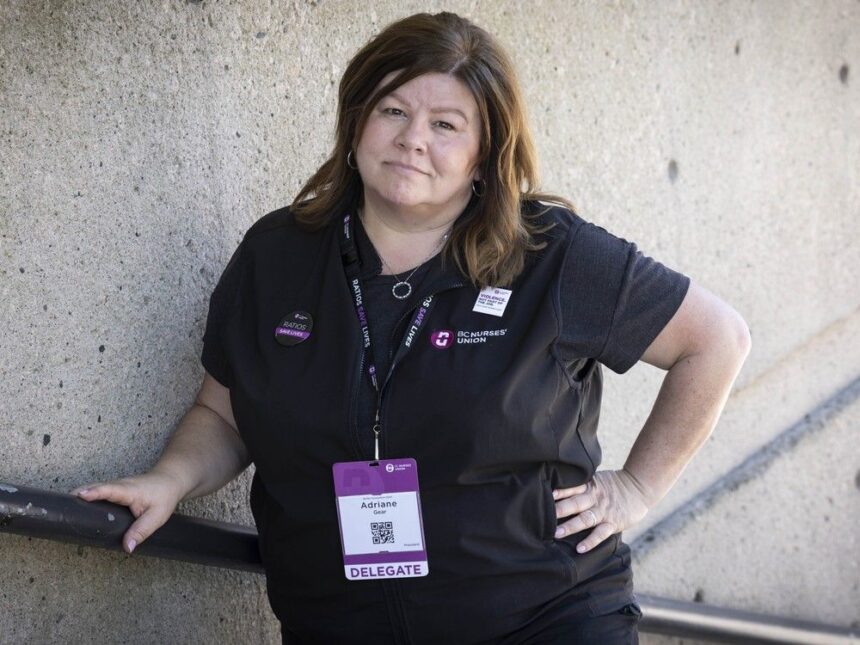A nurse arriving for her night shift at a Vancouver emergency department was attacked in the parking lot last month—punched repeatedly in the face by a patient who had been discharged earlier that day. This disturbing incident is not an anomaly but part of a growing pattern of violence plaguing healthcare workers across British Columbia, prompting urgent calls for system-wide changes.
The British Columbia Nurses’ Union (BCNU) reports an alarming 61 percent increase in violent incidents against healthcare workers over the past five years, with nearly 5,000 documented attacks in 2023 alone. These statistics, however, likely represent only a fraction of actual occurrences, as many incidents go unreported due to time constraints, fear of repercussions, or resignation to violence as an inevitable aspect of the job.
“The culture of acceptance around workplace violence must end immediately,” said Adriane Gear, president of the BCNU, during a press conference addressing the crisis. “Nurses are being punched, kicked, spat on, and verbally assaulted while trying to provide care. No healthcare professional should consider violence a normal part of their workday.”
Healthcare facilities in urban centers like Vancouver and Victoria face particularly high rates of violence, though rural and remote locations aren’t immune. Emergency departments and mental health units report the highest number of incidents, with factors such as extended wait times, inadequate staffing, and insufficient security measures exacerbating the problem.
The provincial government has acknowledged the severity of the situation, with Health Minister Adrian Dix announcing a commitment of $2 million toward improved security measures in high-risk facilities. However, union representatives argue this funding falls dramatically short of addressing the systemic issues at play.
“Enhanced security is just one piece of a complex puzzle,” explained Dr. Margaret Chen, a healthcare policy expert at the University of British Columbia. “We need comprehensive strategies that include better staffing ratios, specialized training in de-escalation techniques, redesigned clinical spaces with safety in mind, and consistent protocols for managing potentially violent situations.”
The BCNU has proposed a five-point action plan, calling for mandatory reporting of all violent incidents, implementation of violence prevention teams at each facility, increased security personnel, installation of panic buttons and surveillance systems, and mandatory training for all healthcare staff in violence prevention and management.
Some hospitals have already implemented innovative approaches with promising results. Surrey Memorial Hospital reported a 30 percent reduction in violent incidents after introducing a specialized response team and redesigning its emergency department to include separate waiting areas for patients exhibiting agitated behavior.
Mental health advocates emphasize that addressing violence against healthcare workers requires nuanced approaches that don’t further stigmatize individuals seeking mental health treatment. “We need solutions that protect healthcare workers while ensuring those in mental health crisis receive appropriate care with dignity,” said James Wilson of the Mental Health Coalition of BC.
For nurses like Sarah Thompson, who returned to work just two weeks after being assaulted by a patient last year, the changes can’t come soon enough. “I became a nurse to help people, not to fear for my safety every time I clock in,” she said. “The system is failing both healthcare workers and patients when violence becomes normalized.”
As British Columbia continues grappling with healthcare staffing shortages, addressing workplace violence has become increasingly crucial for retention. A recent survey indicated that 40 percent of nurses have considered leaving the profession specifically due to concerns about personal safety.
What will it take for our society to recognize that protecting those who care for us at our most vulnerable moments isn’t just a workplace issue, but a fundamental reflection of our communal values and priorities?
For more information on healthcare challenges and developments, visit CO24 News or Canada News.

























